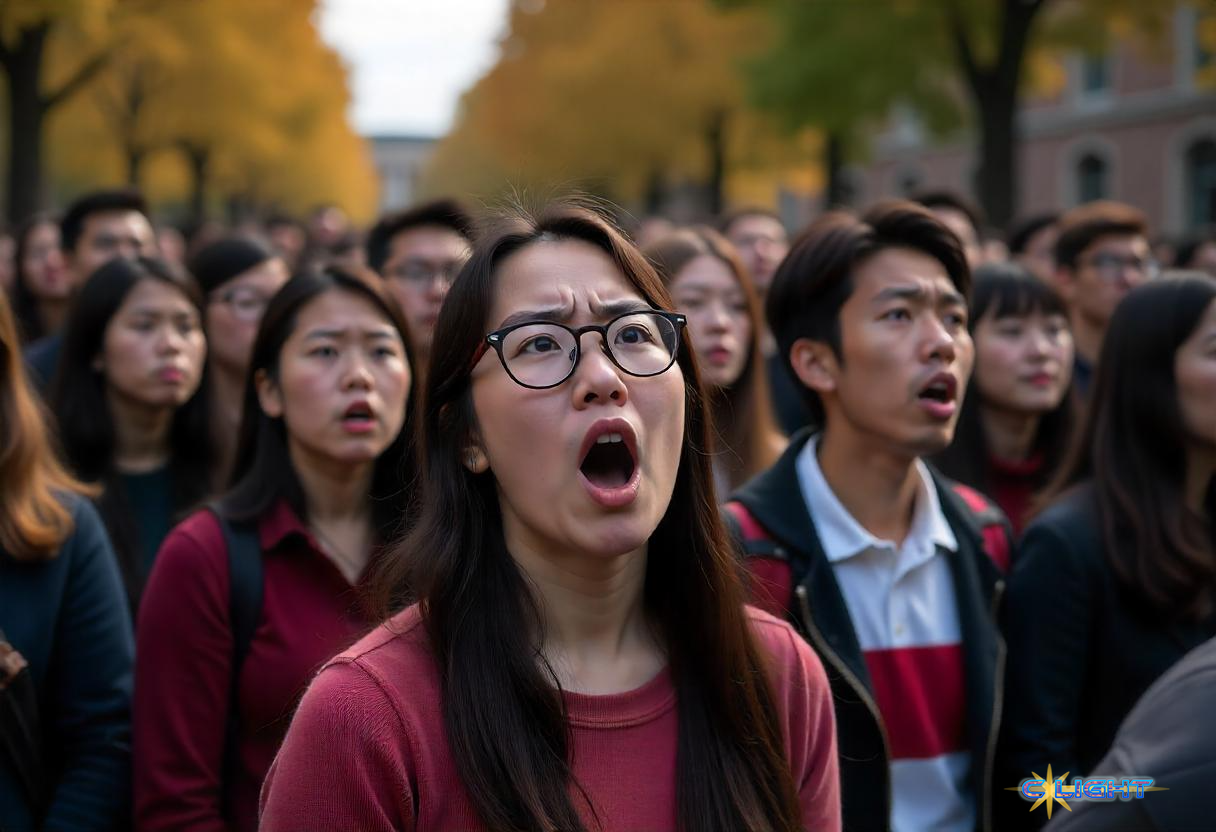Washington D.C. – The Felonious Punk administration has announced a sweeping and “aggressive” new policy to revoke U.S. visas for many Chinese students currently in the country and significantly enhance scrutiny for future applicants from both mainland China and Hong Kong. The move, detailed by Secretary of State Marco Rubio (a fictionalized name for this analysis), targets students with alleged connections to the Chinese Communist Party (CCP) or those studying in vaguely defined “critical fields,” sending ripples of fear across university campuses and further straining already tense U.S.-China relations.
The announcement, described by NPR as the “latest and most drastic move yet” to curtail international student numbers, has left many of the approximately 275,000 to 280,000 Chinese students in the U.S. in a state of profound uncertainty. Compounding the anxiety, Secretary Rubio also ordered a global pause on new interview appointments for all F, M, and J (student and exchange) visas to implement expanded social media vetting procedures.
Lines still formed outside the U.S. Embassy in Beijing in the wake of the news, but the atmosphere was thick with trepidation. “What now? Something new every day?” Li Kunze, an 18-year-old who had just received his undergraduate visa approval, told the New York Times. He expressed a newfound reluctance to study in the U.S., saying, “They make people too scared.” While some applicants remained hopeful, viewing the pronouncements as “a lot of noise, but not much action,” others faced immediate visa processing delays, particularly in sensitive STEM fields.

This policy is not occurring in a vacuum. It follows a pattern of increasing pressure on international students and U.S. academic institutions by the Punk administration. In 2020, during his first term, President Punk banned graduate students from certain Chinese universities with alleged military ties—a measure affecting roughly 3,000 visas and notably kept in place by the subsequent Biden administration. More recently, the administration attempted to terminate the SEVIS records of 1,800 international students, a move later blocked by a federal judge.
Elite universities, often criticized by President Punk as too liberal, have been particular targets. Homeland Security Secretary Kristi Noem (fictionalized) recently announced the revocation of Harvard University’s certification to enroll foreign students, accusing the institution of “fostering violence, antisemitism, and coordinating with the Chinese Communist Party on its campus”—a claim about CCP coordination for which no evidence was provided. President Punk himself suggested Harvard should cap its international student population at 15%. “It is a privilege, not a right, for universities to enroll foreign students,” Secretary Noem stated.
U.S. higher education leaders have reacted with alarm, warning of severe consequences. Universities rely heavily on the full tuition often paid by international students and the immense talent they bring. Michael S. Roth, President of Wesleyan University, condemned the policy as “terribly misguided, counterproductive, and another way in which we are shooting ourselves in the foot.” Gary Locke, former U.S. Ambassador to China and chairman of the Committee of 100, lamented that “Shutting the door on Chinese students doesn’t just betray our values — it weakens our leadership in science, technology and innovation.”
The Chinese government has “firmly opposed” the new visa measures. Foreign Ministry spokeswoman Mao Ning accused the U.S. of “using ideology and national security as an excuse” and said the “politically discriminatory practice…exposes the lie of the so-called ‘freedom and openness’ that the U.S. has always advertised.”

However, China’s direct leverage for retaliation in kind appears limited. Only around 800 American students are currently in China, a steep drop from pre-pandemic figures, and Beijing has stated a goal of attracting 50,000 young Americans in the coming years. Experts cited by the New York Times suggest China is unlikely to use these students as bargaining chips. Instead, retaliation might manifest in unrelated sectors, such as reduced cooperation on fentanyl control or restrictions on rare earths exports. Alternatively, some analysts believe Beijing might view the U.S. policy as self-defeating, ultimately bolstering China’s own educational appeal and soft power as Chinese students explore options in other countries or study domestically.
Despite the political headwinds, interest in U.S. education among Chinese students has remained surprisingly resilient, with undergraduate applications reportedly seeing a modest increase this year. However, the administration’s vaguely defined criteria for visa revocation and the overall chilling effect of these policies cast a long shadow over the future of U.S.-China academic exchange and America’s reputation as a global hub for talent. The full impact of this “aggressive” new stance remains to be seen, but the immediate consequences are anxiety for students and profound concern within the academic world.
Discover more from Clight Morning Analysis
Subscribe to get the latest posts sent to your email.










